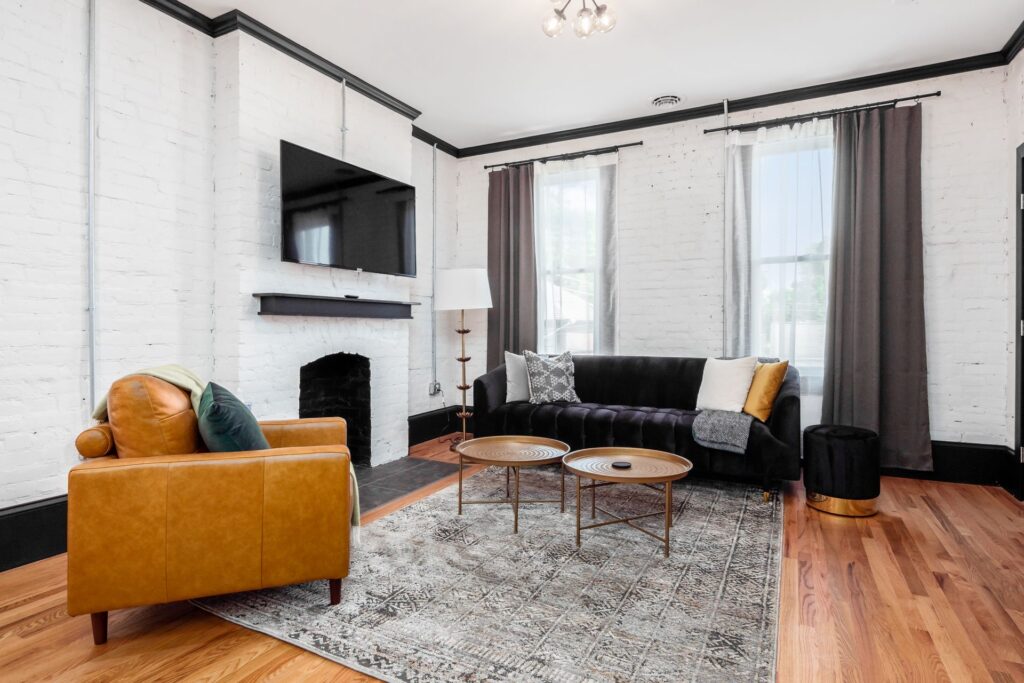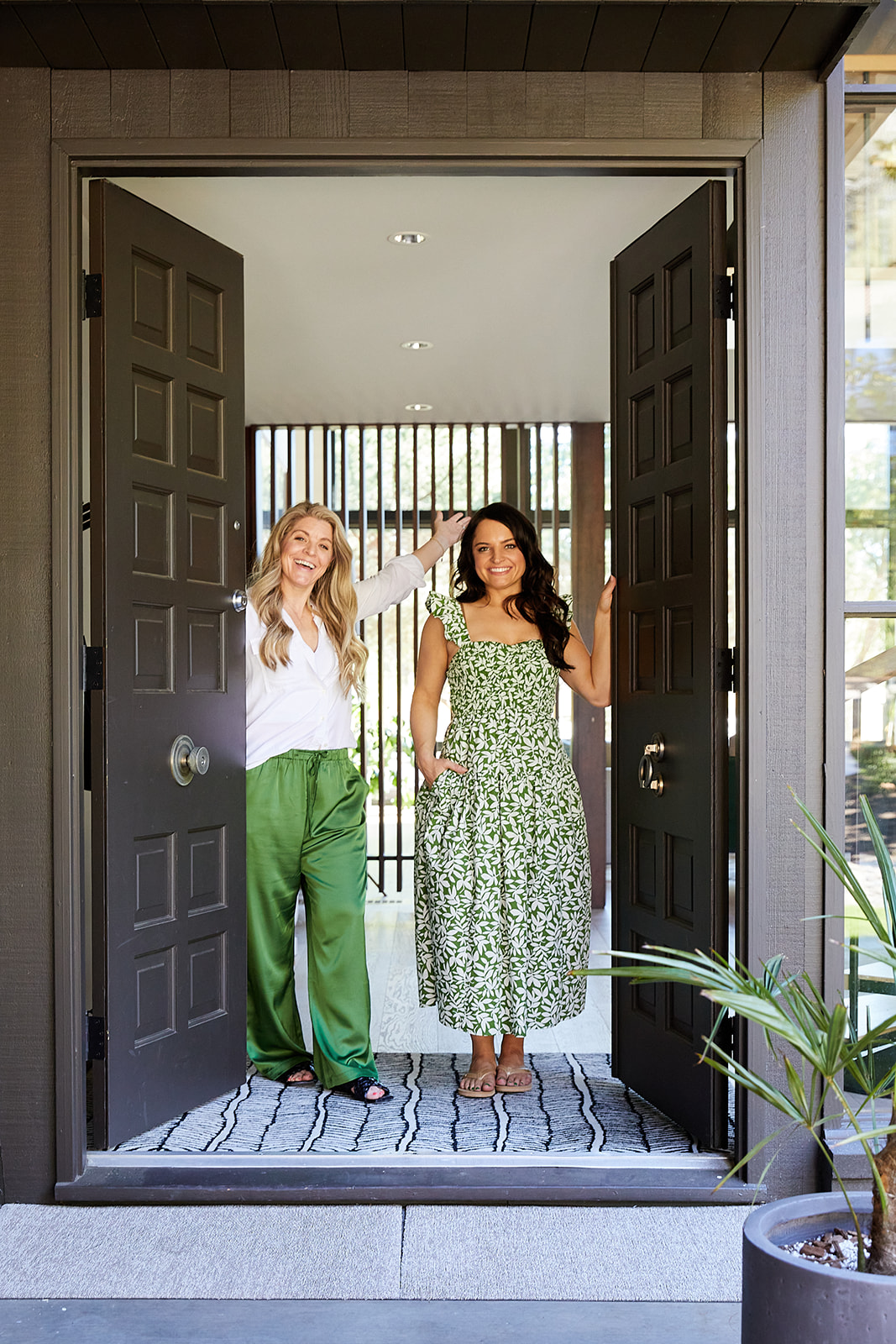
Are you making any of these top Airbnb host mistakes?
Today, we’re going to uncover five common reasons hosts struggle and, more importantly, show you how to fix these critical Airbnb host mistakes. We’ve been in this game for over ten years, managing our own vacation rental properties. We’ve welcomed tens of thousands of guests and gathered thousands of five-star reviews, learning much about what leads to a successful Airbnb experience.
Our properties consistently bring in significant income year after year. We’re here to give you straight talk about your furnished rental business, helping you avoid common pitfalls and improve hosting. Strategic planning is fundamental to thriving in this competitive space.
We’ve rounded up all of our Airbnb Hosting Must-Haves right here in our Amazon Store. Click here to grab everything you need to curate your property and start earning 5-star reviews.
- Chasing Quick Wins: The Pitfall of Airbnb “Hacks”
- Are Your Listing Photos Costing You Bookings?
- Is Your Calendar Scaring Away Potential Guests? Making This an Airbnb Host Mistake.
- Pricing with Emotion, Not Data: A Common Airbnb Host Blunder
- The Trust Trap: Assuming the Worst of Your Guests
- Conclusion
Chasing Quick Wins: The Pitfall of Airbnb “Hacks”
Ah, the allure of the “hack.” It feels like a fast track to success for many Airbnb hosts, doesn’t it? Like a quick dopamine hit when you think you’re scoring an easy win. While some of these so-called hacks might have a tiny bit of truth to them, relying on them is a surefire way to struggle in the long run.
Building a sustainable hosting business isn’t about shortcuts; it’s about providing genuine value and a solid hosting experience. The learning curve in the short term rental market can be steep, but foundational excellence always wins over superficial tricks. Chasing quick wins often means neglecting the core aspects of your Airbnb listing that truly matter to guests.
We hear about these “hacks” all the time from other Airbnb hosts. One popular one is joining wish list groups. The idea is that getting lots of wish lists boosts your listing in the search algorithm. We’re not here to completely debunk that, as visibility helps. But, if your Airbnb listing itself is terrible, or if your property doesn’t deliver on promises, all the wish lists in the world won’t save it. Guests will see right through it once they click, leading to disappointed guests.
Another “hack” that makes us cringe is hiring virtual assistants just to get bad reviews removed. Some people claim there’s a secret way to do this. But here’s the real issue: you need to figure out why you got that bad review in the first place. Addressing guest feedback directly is far more productive for long-term success.
If you’re racking up multiple bad reviews, Airbnb will notice, and this can seriously jeopardize your Airbnb property. They recently removed a huge number of listings that consistently failed to meet guest expectations. Constantly trying to erase negative feedback instead of fixing the underlying problems with your term rental means you’re likely next on the chopping block.
Focus on your property. Focus on the guest experience. That’s the only approach that truly works for a successful Airbnb.
Then there are the minor tweaks people obsess over, believing these are secrets to manipulate the algorithm. Things like deleting a period and adding it back just so Airbnb sees you as “active.” Or constantly changing emojis in your listing title. Some hosts even put captions like “Superhost” directly onto their photos or use other visual tricks to lure guests, which can sometimes deter guests looking for authenticity.
While creativity in presenting your vacation rental can be good, sometimes it’s best to keep things simple and professional. These hosts are often spinning their wheels, avoiding the real work: becoming a better host and offering a better property. This often involves going the extra mile to provide essential amenities and ensure guest satisfaction.
Hot Tip: Add a Forgot Something basket to your property. This simple, yet effective, amenity is mentioned in hundreds of our 5-star reviews! Check out everything you we include in our basket right here in our FREE Forgot Something Basket Guide.
Are Your Listing Photos Costing You Bookings?
Your listing photos are your storefront to the world for your Airbnb property. For many guests, these images are the first, and sometimes only, impression they get of your place. Yet, we are still shocked by how many hosts neglect this critical aspect of their Airbnb listing.
If your photos aren’t good, you’re losing clicks, and without clicks, you can’t get bookings. This directly impacts your occupancy rates and overall income. Poor photos are one of the most avoidable common mistakes.
Think about it. We don’t have videos to show off our spaces yet on most booking platforms. We have very little to go on to attract potential guests to our short-term rental. So, those photos have to be top-notch. They need to be clear and well-lit.
They must capture a vibe and a mood. And critically, they have to be realistic and provide accurate details. Does your property still look exactly like it does in those pictures?
We see so many common photo mistakes. Cluttered spaces are a big one; guests notice everything. Sometimes, we’ll see a series of beautiful, professional photos, and then suddenly, there’s a poorly lit iPhone picture. Maybe you upgraded a bed or changed something in the kitchen and just snapped a quick photo, intending to get a professional one later. That random, low-quality shot, especially if it’s a vertical photo mixed with horizontal ones, is jarring for potential guests and can lead to disappointed guests if the reality doesn’t match their perceived image from the photos. It disrupts the flow and makes your Airbnb listing look unprofessional.
The order of your photos matters too. We’ve seen listings with twenty exterior shots before you even get a glimpse of the inside. Remember, guests are usually staying inside the house, not just admiring it from the curb. Unless you have an architecturally stunning masterpiece, lead with the interiors.
Give them a virtual tour with your first five photos so they can get a real taste of your property. Your first few photos are your prime real estate for your rental property; use them wisely to highlight its best features, perhaps even unique features if they are truly special and add value.
Then there are the just plain messy spaces. Photos where the trash can, or even a toilet plunger, seems to be the accidental focal point. It makes you wonder what was going through the host’s mind. Ensure your photos showcase a clean environment, with basics like toilet paper well-stocked in bathrooms.
Before you dismiss this and think, “My photos are fine,” take a hard look. Even better, show them to a brutally honest friend. You know, that friend who always tells you the truth, even when it stings a little. Ask them for their candid opinion. It’s a good practice for all Airbnb hosts to regularly review and update their visuals. Bad photos aren’t just unappealing; they actively cost you money.

Is Your Calendar Scaring Away Potential Guests?
We often talk to hosts who want more bookings and higher income for their short term rental. After checking their photos, the very next thing we examine is their calendar settings. And honestly, we’re often astonished by the restrictions hosts place on their availability, a frequent Airbnb host mistake.
These self-imposed limitations are a huge, yet often overlooked, issue. You wouldn’t believe some of the setups we’ve seen that deter guests. One host had every single Tuesday blocked off for their vacation rental. Why? Because their cleaner was only available on Tuesdays, which also influenced their cleaning fee structure.
Think about that. The cleaner’s schedule was essentially running the entire rental business. This meant no guest could ever book a full week if it crossed a Tuesday. That’s a real example of how operational details can negatively impact guest satisfaction before a stay even begins.
Another common issue is excessively long minimum stays. We encountered a host who had a four-night minimum on all weekends. Most people think of weekends as two nights, maybe three for a long weekend if they are planning a short term trip. If there’s a secret club for four-night weekend travelers, we want an invitation.
Seriously though, requiring a four-night stay (Thursday through Sunday) for every weekend severely limits your pool of potential guests. This same host had three-night minimums during the week. Imagine how many bookings, including potential minute bookings, they were missing due to these static rates of stay length.
We also see seven-night minimums, especially in historic vacation towns where Saturday-to-Saturday bookings were once the norm. But times have changed. Travelers today, including those from diverse markets like South Korea, often prefer shorter, more flexible stays. Maybe people now just want to come for a long weekend to a place like Cape Cod, instead of a full week.
You need to adapt to current travel patterns and guest preferences. Forcing check-in and check-out on specific days also turns guests away. If you make these decisions because that’s how you, as the CEO of your business, want to run things, that’s your choice. But then you can’t complain about wanting more bookings and more money when your calendar is full of these restrictions; the two just don’t go together if you want to stay competitive.
Here’s what often happens: a host explains their calendar rules to us, and then we look at the actual booking data, perhaps using a tool like PriceLabs, which many property managers use. The data frequently tells a very different story. It might show that, for the past two years, no one in their market has been booking four-night stays; they’re booking two-night stays. The market data will reveal what guests are actually searching for and booking on various booking platforms.
Don’t let your “feelings” about how long guests should stay dictate your calendar settings. There are certainly times for longer minimums, like during major local events or peak holidays. But these shouldn’t be permanent, year-round rules. Hosts often set these restrictions once and then let them run indefinitely, without considering changing demand or how it impacts their Airbnb property’s appeal.
One more calendar mistake we see is requiring a buffer day before and after every booking. Some hosts do this because their cleaner “needs” a full day. Again, if that’s your business model, fine. But understand the cost.
When we see calendars where every five-day reservation also blocks out two additional days, you’re effectively cutting your available inventory almost in half. You only have 365 days a year to sell. Each restriction shrinks your potential income, impacting your ability to operate legally and profitably if fixed costs are high. Guests search for their specific dates. If your property isn’t available because of these self-imposed blocks, you simply won’t show up in their search results. You can’t make money if guests can’t find you or book your term rental.
Pricing with Emotion, Not Data: A Common Airbnb Host Blunder
How many times have you heard, or even said, “I feel my price should be X,” or “I could never get Y for my place”? Many hosts make the mistake of pricing their property based on emotion, gut feelings, or personal financial anxieties, rather than solid market data. This is where your money stories can really get in the way of your earnings for your rental property. We’ve all been guilty of this in some area of life, but in the rental business, it’s a direct hit to your bottom line and a common Airbnb host mistake.
We often see this emotional pricing when hosts select their base rate. This is the foundational price that dynamic pricing tools then use to calculate nightly rates. If your base rate is set too low because you “feel” it shouldn’t be higher, you’re capping your potential from the start. Conversely, if it’s too high based on an inflated sense of value without market validation, you’ll struggle for bookings, even if you provide essential amenities and great service.
The great thing about using data is that you don’t have to guess. The market will tell you what bookers are willing to pay for a short-term rental. Relying on static rates instead of dynamic pricing is a missed opportunity to maximize revenue. Professional property management services often leverage these tools effectively.
Another manifestation of emotional pricing is setting arbitrary maximum rates. We see this all the time. Hosts literally prevent themselves from making more money because they “feel” a certain price is the absolute most anyone would pay, or the most their property is “worth.” They think if the price goes any lower, they’ll attract parties or problem guests. But this simply isn’t true across the board, especially if you have clear house rules and a good screening process.
Let’s use hotels as an analogy. A standard hotel room—often just a square box with a bed, a bathroom, and maybe a mini-fridge—can fluctuate wildly in price. You might see a room for $119 one night and $1,000 the next for the exact same room. Hotels have no problem with this. And why? Supply and demand. Basic economics.
If it’s a high-demand period, with a major event in town or peak tourist season, and there aren’t enough rooms, hotels can command those higher rates. Guests willingly pay them. You should think about your Airbnb property the same way, especially if it’s a well-maintained vacation rental. In fact, you likely offer much more value than a standard hotel room.
Remove that artificial maximum and let the market dictate what your property can earn. This strategic planning with pricing is key to long-term success. Pay attention to market trends and adjust; don’t let fear dictate your pricing strategy. A successful Airbnb host understands this balance.

The Trust Trap: Assuming the Worst of Your Guests
It feels like for some Airbnb hosts, the default setting is to distrust guests. This should be the complete opposite. If your first instinct when you get a booking inquiry for your short-term rental is suspicion, you might be in the wrong business. This industry is built on hospitality and positive guest communication.
Do bad guests exist? Of course. Just like you encounter difficult people occasionally at the grocery store or the doctor’s office. It’s part of interacting with humans. But if this fear becomes your default operating mode, you’ll make poor decisions that harm your business and deter guests who are genuinely good.
We see hosts rejecting legitimate bookings because something “feels suspicious” without any real evidence, a classic case of assuming guests will be problematic. They create overly complicated house rules, often in all caps, essentially yelling at potential guests before they even arrive. Checkout instruction lists can become ridiculously long and demanding. It leaves guests wondering, “Do they even want us here?” Such an approach can negatively impact guest feedback and discourage guests from leaving positive reviews.
This mindset of “everyone is trying to scam me” leads hosts to put up all sorts of unnecessary barriers. They might ask for an exhaustive explanation of why someone is coming, who they’re traveling with, and what their plans are. While it’s smart to have some parameters and safety practices in place to make sure the right Airbnb guest books the right property (this helps get five-star stays.), you don’t want to interrogate every potential visitor. Remember, protections like Airbnb AirCover for hosts and robust rental insurance are there for a reason.
We’re not downplaying serious incidents that sometimes make the news. But those are not the norm. Most guests are wonderful, respectful people just looking for a nice place to stay and are happy to abide by reasonable rules. A welcoming approach will encourage guests to treat your property with respect.
If your default is distrust, take a moment for some honest reflection. You really need to ask yourself if this is the right industry for you. When someone wants to stay at your place, your first thought should be excitement and “How can I make their stay amazing?” not “How are they going to try and rip me off?”
Consider offering local recommendations or information about local events to enhance guest experience. Going the extra mile often leads to better guest reviews. A positive hosting approach focuses on welcoming guests and ensuring they have a comfortable stay, which is fundamental for a successful Airbnb.
At the end of the day, many hosts struggle because they operate from a place of fear, making it a significant Airbnb host mistake. They let their feelings dictate business decisions instead of relying on facts, data, and established best practices in property management. You are a business owner. Your mindset matters immensely in how you operate legally and successfully.
Calling All Hosts: The Hosting Handbook
If you loved this post we invite you to check out our one-stop-shop solution for hosts everywhere —the Hosting Handbook! While you can download all the easy to consume, step-by-step tips we use in our own hosting business and create the ultimate “book” the Hosting Handbook is so much more than that! If you’ve consumed or content for years (or just met us!) this is the reference guide for all the amazing and tactical tips we have for running a profitable and, more importantly hospitable, short-term rental. How do we price for pets? How do we fold our towels? What sheets do we buy? How do I purchase a short-term rental? All these questions (and more!) can be answered in the Hosting Handbook! Check it out now!
Happy Hosting!



show comments
HIDE comments